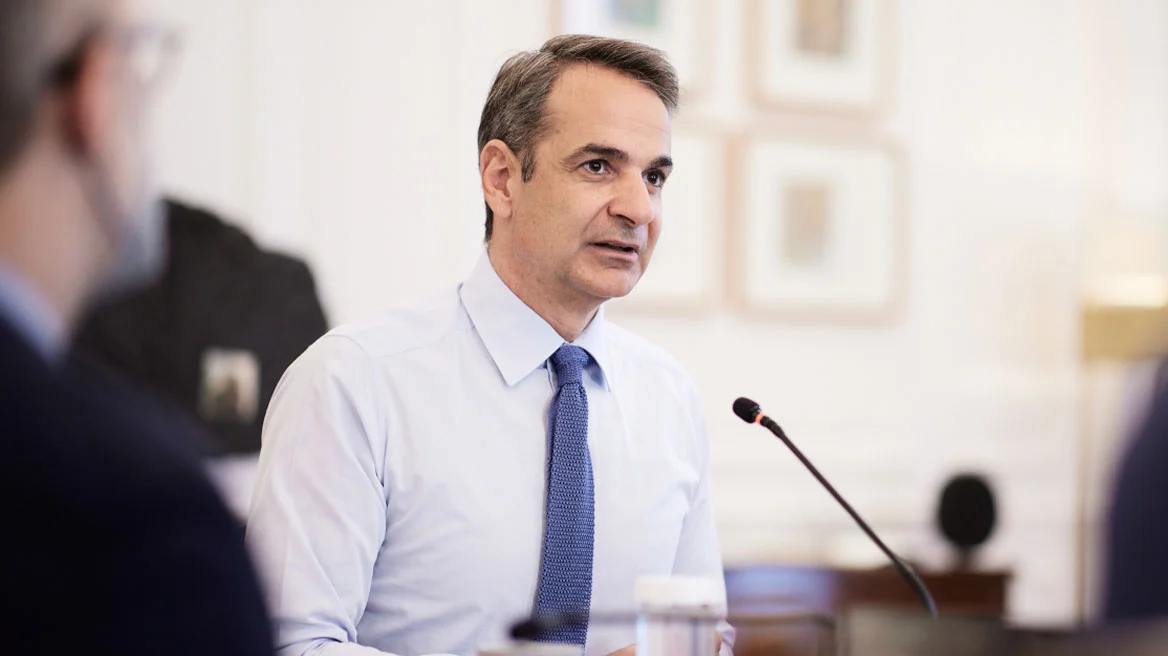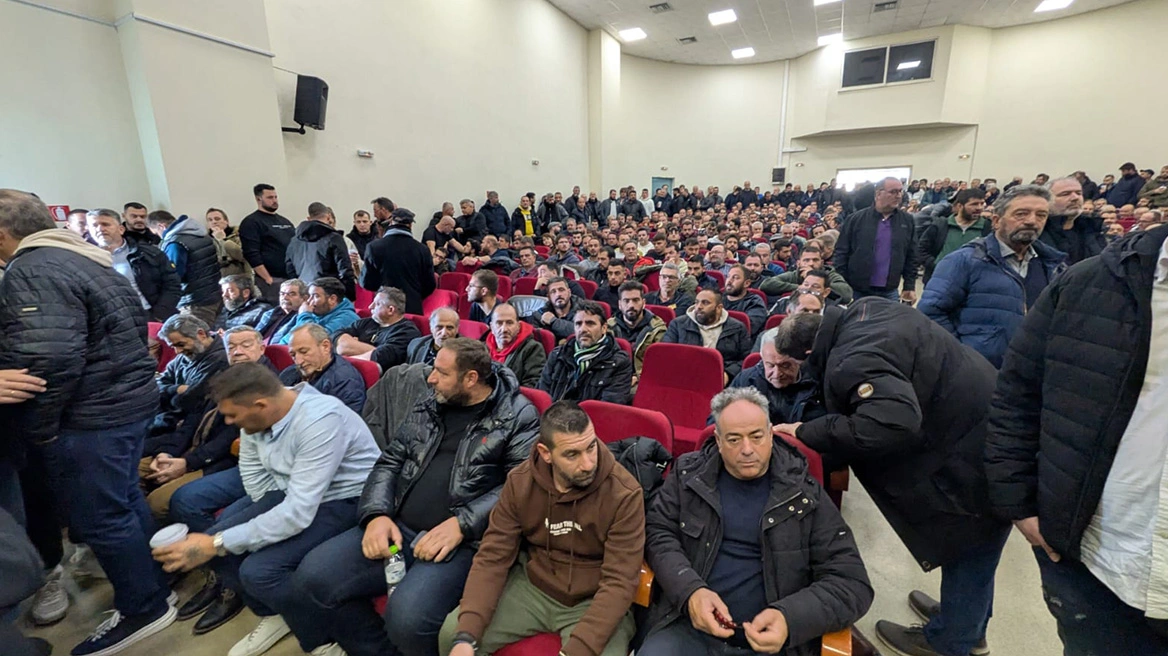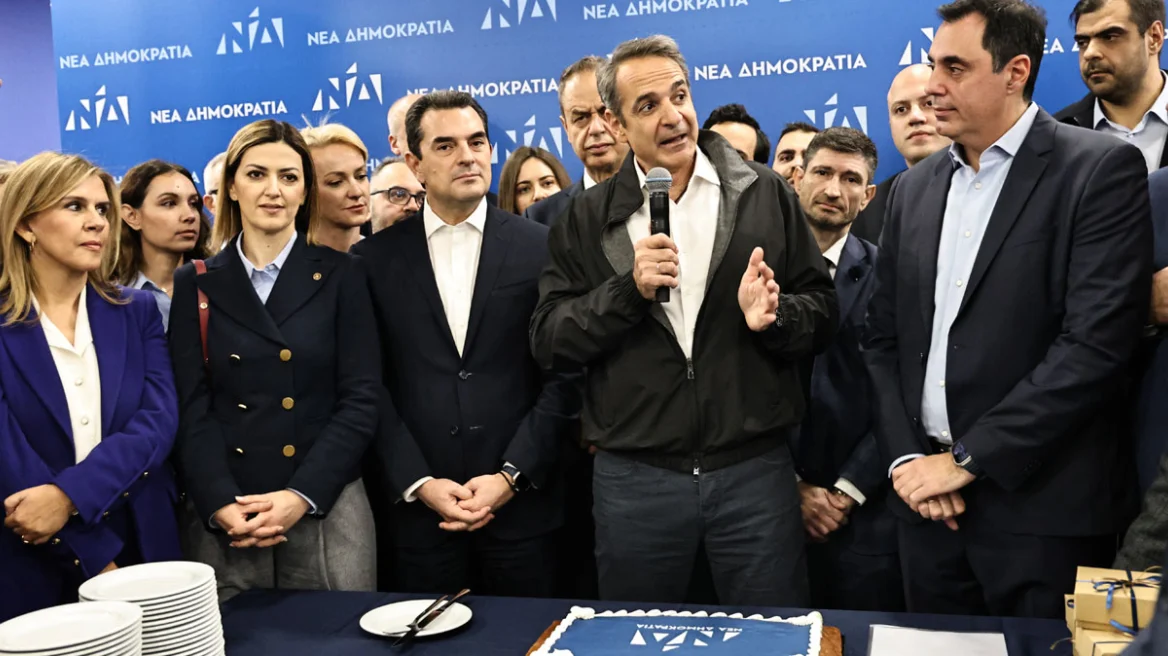To pick up a “yellow card” from the first… half-time yesterday, the Minister of National Defence, Nikos Dendias, chose to suddenly invite the French Ambassador to Athens, Laurence Auer, in a resounding gesture of protest. Despite the close Greek-French cooperation, which recently culminated in the organization of the 1st Greek-French Symposium on Defense Innovation, Mr. Dendias attempted to remind the French diplomat that “pacta sunt servanda”, i.e. that agreements must be respected, especially when Greek arms systems are being closely studied by neighboring Türkiye.
Μετά τη σχετική ενημέρωση του Πρωθυπουργού κ. Κυριάκου Μητσοτάκη και του Υπουργού Εξωτερικών, κ. Γεώργιου Γεραπετρίτη, συναντήθηκα σήμερα στο ΥΠΕΘΑ με την Πρέσβη της Γαλλίας, κα Laurence Auer, από την οποία ζήτησα επίσημη ενημέρωση σχετικά με τις πληροφορίες για πώληση πυραύλων… pic.twitter.com/40XTNS9vyJ
— Nikos Dendias (@NikosDendias) January 29, 2025
In this context, the Minister of National Defence reacted institutionally on the one hand, but strongly against the possibility of selling BVR (Beyond Visual Range) air-to-air missiles METEOR to Türkiye, expressing Greece’s “strong opposition to such a possibility, which is not in line with the excellent strategic relations between the two countries”, following a briefing by Prime Minister Kyriakos Mitsotakis and Foreign Minister George Gerapetritis.
Although France is Greece’s foremost strategic defense partner, France’s intention to change the balance of power in the Aegean with the sale of the BVR METEOR immediately mobilized the reflexes of the Minister of National Defense in a political move that has no historical precedent, with the Prime Minister declaring in yesterday’s interview with Alpha that “sometimes prevention is better than cure”.
The preventive actions, however, that the leadership of the Ministry of National Defense took yesterday are rooted in the close bilateral relationship between Athens and Paris on the defense level, which has been sealed through the Greek-French Defense Agreement, signed in 2021 between the then Minister of National Defence, Nikos Panagiotopoulos and Florence Parley and the then Foreign Minister, Nikos Dendias and his French counterpart, Jean-Yves Le Drian.
At the same time, however, what is stipulated in the Agreement does not remain at the level of mere diplomatic formulations, when Article 15 of the Agreement stipulates that “Greece and France shall deepen their cooperation in defence matters while at the same time seeking to strengthen European defence”. Moreover, “they shall consult with each other at all levels to develop a common understanding on all major decisions affecting their common defence interests and joint action, whenever possible”, an element that is not disregarded by the Pentagon.
Particularly about the deterrent power Türkiye wishes to develop, given that the BVR Meteor air-to-air missiles, according to military analysts, are a “game changer” in terms of air superiority. Given that they support “no escape zone” scenarios, a range of around 200 km and an absolute zero escape range of 60 km. For this reason, their operational capabilities have been targeted by the neighbouring country, which is now trying to put pressure on Paris. At the same time, military circles combine Turkish interests with the fact that BVR METEOR missiles are already in the arsenal of the Greek Rafale, dramatically increasing the power differential of the Greek Air Force against the Turkish Air Force.
-
- In detail, the technical characteristics of the BVR METEOR:
-
- -High Explosive Blast Fragmentation
-
- -Range: 200 km
- -Weight: 190 kg
- -Length: 3.65 m
- -Diameter: 17.8 cm
- -Speed: ˃4 Mach
- -Type of Carrier Aircraft: Rafale
– Rafale-file/aircraft type.
Aircraft type: Rafale
– Aircraft type: Rafale
– Aircraft type: Aircraft type: Rafale
– Aircraft type: Aircraft type: Rafale
Besides, Greece’s air dominance has been raised to a degree of concern in Türkiye’s National Security Council (and more than once), as the 24 Rafale aircraft, the 83 F-16 Viper aircraft to be upgraded and the future participation in the F-35 program create conditions of air superiority that push Ankara to look for other solutions.
Among them, Türkiye is in talks mainly with Germany for the supply of Eurofighter aircraft, which can carry Meteor air-to-air missiles, subject to permission from France, which is participating along with Italy, Sweden, Spain, Germany, and the United Kingdom, with the latter playing the role of main coordinator.
It should be noted that Türkiye’s most modern missiles are the AMRAAM C7, but the Meteor is superior to the neighbouring country’s AMRAAMs, as it has a longer range, ramjet engine, and greater kill probability and greater resistance to electronic countermeasures.
“Copy Paste” a la Turka
The “yellow card” issued by National Defense Minister Nikos Dendias is made all the more interesting by the fact that this is the third time in the post-communist era that Türkiye has attempted to acquire the same defense system as Greece’s, a fact that highlights its anxiety to closely monitor the upgrade of Athens’ deterrent capabilities, especially about the Aegean.
It all started in early 2000 when Greece acquired the Kornet-E from Russia to enhance the anti-tank capabilities of the Greek Armed Forces. Subsequently, it took some time before Türkiye acquired Kornet-E, following the need to strengthen the Greek anti-tank arsenal in real-time. The same… hunt for Greek armaments evolved in the case of the “purchase of the century”, namely the Leopard 2 tanks, which Greece acquired earlier from Türkiye, signing a contract for the purchase of 170 Leopard 2A6 HEL tanks in 2003, with their delivery being completed in 2009. Faced with this development, Ankara was led to the decision to acquire 298 second-hand Leopard 2A4s in 2005, with Germany as the country of production, to deprive Greece of this strategic advantage.
Ask me anything
Explore related questions





